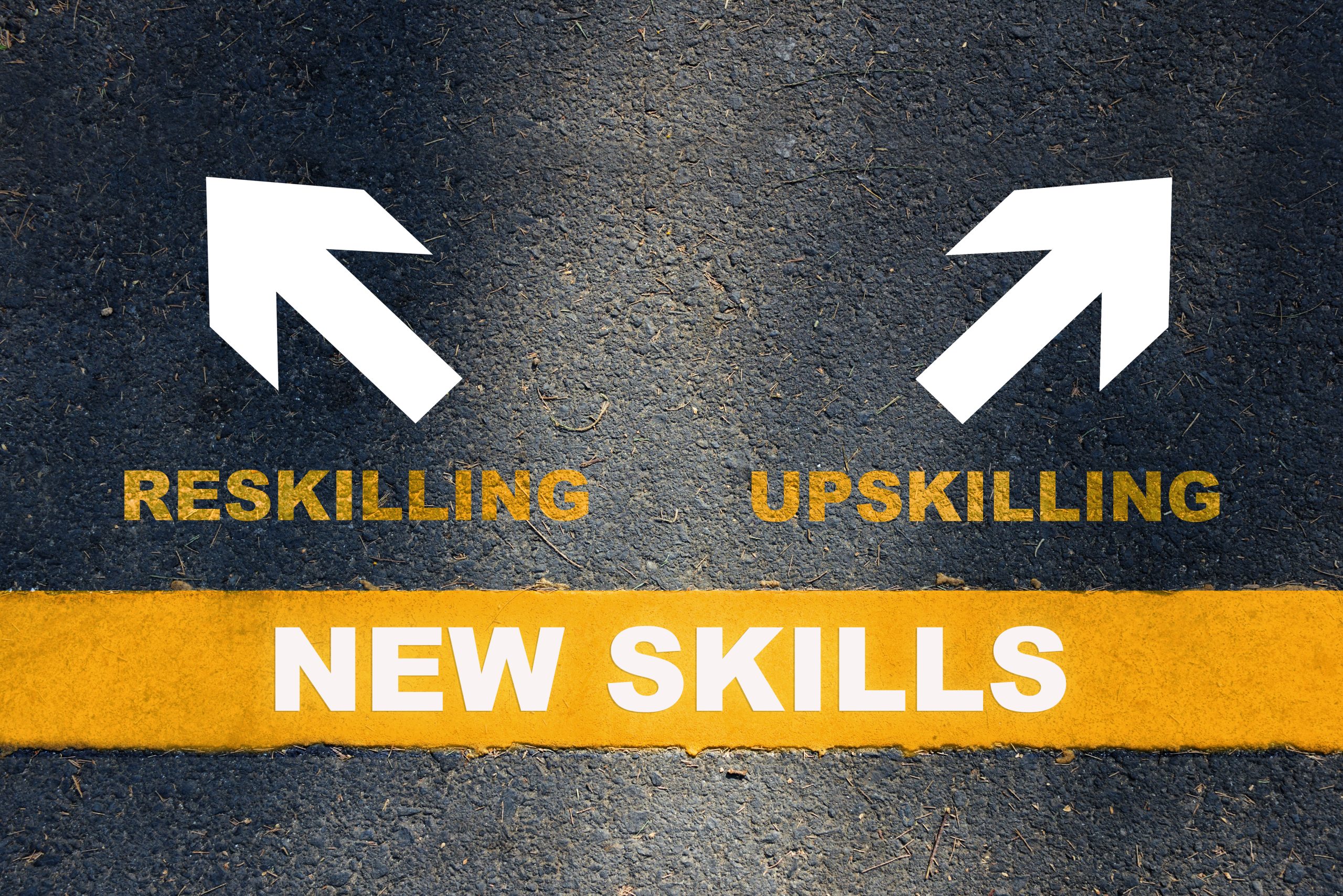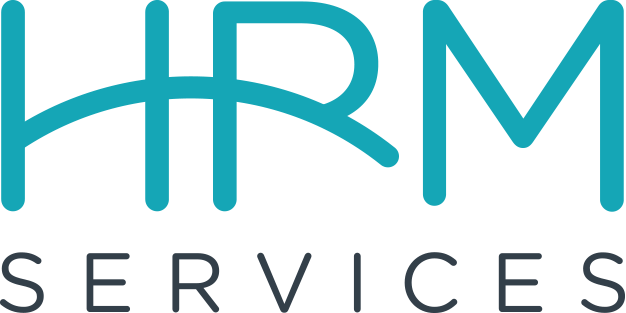
Hey everyone! Welcome to April’s edition of HR Hot Topics – I’m your host, Jodi Schafer. The format of today’s post will look a little different. I recently sat down with a colleague of mine, Alissa Parks, to talk about the latest workforce statistics and solutions. So we’ll be going back in forth based on the conversation we had.
One of the things I mentioned in a previous post was the idea of upskilling or reskilling a workforce – knowing the number of people that are going to be in the talent pool will continue to drop for the foreseeable future. We as employers have to become much more intentional and strategic about how we adapt. And part of that adaptation is going to be coming up with programs, both internal and external, to provide the workers that are available with the skills we need to be effective in our workplace.
We’ll kick it off with a question for Alissa – let’s talk about this idea of upskilling and reskilling a workforce. What does that mean?
Alissa: Let’s first define it. So upskilling, we’re talking about people you already have in your company, in your practice, in your business, and they may be interested in learning new skills or moving into different roles. Perhaps they’re already a really good fit for your organization and your culture and you already know them. So they just need some additional skill building and some support to move into a different role. Reskilling is for people outside of your organization who may be looking to move into a different role or industry.
It may not be someone who on paper and in person checks all the boxes. But they have some of those soft skills – they’re a good fit for your culture. And maybe it’s just about them learning some new skills and having potential for that.
Jodi: So I was going to tell you, I talked to a lady yesterday and her husband had worked in banking for his entire career. And I mean, he probably has 20, maybe even 30 years of work history behind him. And for the last handful of years he plans to work, he decided to make a total career change and become a flight attendant. We’ve heard the term, the great resignation. And then we’ve heard this new term, the great reshuffling. It’s not that everybody left the workforce necessarily, although large percentages did. But the folks that stayed in the workforce and left a job, left to go somewhere else and maybe a totally different sector like this gentleman who just wanted a change. And to this idea of reskilling on paper, I’m not so sure somebody with 20 or 30 years in the banking industry, would’ve been your top pick for a brand new flight attendant. But if you think about what it takes to make it in that industry for that long, he probably has some of the skills you’d want – patient, clearly able to deal with conflict, flexible, resilient, etc.
So you would have to have some sort of training protocols in place to teach this gentleman how to do this job, even though he’s coming into your place of business with all these other skills that are highly valuable and sought after. We don’t want to lose out on those folks simply because we don’t have a program in place to give them the X’s and O’s. So that would be kind of that reskilling piece you’re talking about.
Alissa: I also think there’s a third category. I’m not sure where it fits in with reskilling or upskilling, but it’s also looking at students or those who may be very early in their career. Even high school students or students just out of high school, who are interested in joining the workforce, but they don’t yet have the skills and experience. They may have some of those soft skills that we talked about and have that potential. I know a number of businesses that are partnering with their local career institute or career center. And while students are getting that education, even in high school, or maybe the year after they’re doing on the job placement with those businesses, and then if it’s a good fit, they’re able to hire them. So it’s a pipeline. I think we’re really talking about how we create more strategic pipelines into the roles that we need.
Jodi: In multiple ways, it’s like instead of fishing with a rod and reel, you know, very targeted, you’re fishing with a net, you’re throwing out a wide range of options and you’re pulling in people at all different points in their professional growth and development. And then you have programs in place, depending on where they’re coming in, to meet them where they are and then get them where you ultimately need them to end up in terms of competency and knowledge and proficiency. One of the interesting conversations that Alissa and I have often is, what is the role of a vendor or a partner or a subject matter expert in creating a knowledge base. And that could be a career institute. It could be a college prep training program. It could be an apprenticeship, it could be services like ours – things like leadership, communication, etc.
Where is the role of somebody like that? And then where does the employer come in in terms of developing true competency. Because I think these training programs provide knowledge, but it’s only through practice and on the job application that you truly build proficiency and competency in the workplace, and that’s where the employer really needs to step in. So it’s identifying what skills are going to be necessary, right? That’s your job as the employer, nobody knows that like you do. It’s finding out the different resources available to you to help train those skills. And maybe this is you and maybe this is not you – maybe this is where partnerships come in. But once people go through those training programs, how do you then leverage the skills that they’ve just trained into a practical application so that they can build true competency in the role? That’s where you come in again.
That’s strategic – you can’t just wing it, you know, and hope to be effective. These are dollars that you’re spending. This is time that you’re investing, and this is an impression you’re leaving on every single person you interact with. So the reputation of your entire company is also at stake. If you do it well, it cements the reputation. It helps with your retention of your current staff, which everybody wants to do, and makes you more attractive to bring in new staff. But if you botch it, if you sort of piecemeal it, or think that one vendor or one partner is your solution to this, it’s not only going to be wasted energy and effort, but it really could do some damage to your brand and image. One bad experience online is magnified tenfold or more.
Alissa: So going back to where you started, you really have to have the long view on this. I mean, yes, you have needs probably right now filling roles and we’re all feeling that. But think about what you can do in the short term while working on long term strategies at the same time.
Jodi: Cast that net, like you said. Employers have to take an active role. This is not a check mark thing. This is who can spend some time with these employees, no matter if they’re upskilling or reskilling on the job, mentoring, coaching, that is an area that so many employers skip because it does take time and it does take its own skill to know how to coach well, but it really is worth the investment. Not only for helping people fit into roles that you need, but retention is so key for job satisfaction. We know with the reshuffling that so many people are leaving roles because of organizational culture. And one key reason is that employees don’t feel like they’re being invested in to increase their skills or supported to grow. So this will kind of check all of those boxes to help retain employees and be an employer of choice.
So on that note, we have an exciting announcement! At HRM Service, we’ve long been known for our excellent training, specifically in the areas of leadership development (which would fall kind of in this upskilling category), communication, conflict resolution, etc. And as good as it is, it was limited by our capacity to provide that training in person, which is always our preference, but we’re a small team. So a couple of years ago, we wanted to take what we teach and put it into an online platform as well. We saw that was the way of the future. And while we hope it never ushers in person training, there’s certainly a place for it. And we wanted to make sure the content was available online as well. It has been a labor of love.
I feel like I’m giving birth at this point. It’s been so much work, but this month, the new training platform is going to launch. You’re going to be able to tap into the knowledge piece. We were talking about where you partner with a vendor to provide some of the expertise in a content area. Well, we can be that partner for you on the leadership communication side of the equation. And to your point about coaching and mentoring, your leaders need to know how to do that well, to implement the rest of the skill training that we were touching on earlier. We can be your partner in that. We’re certainly available to still train in person, but now we’re going to have an online, on-demand option too!
And one really cool thing that’s happened as a result of COVID is the ability to use technology like zoom or teams and provide some real time facilitation virtually. So we have that option too. We call it a hybrid option. You can have your team consume the online content asynchronously, and then schedule facilitation calls with our team and your team at the same time to dive deeper into that for real application purposes. And that creates a natural passing of the baton from a subject matter expert on a content side to the employer in terms of real world application – that’s where the value is. We’re just so excited! It’s called HR Hazmat.
It’s our job to tell you what’s coming and give you some practical tips and resources for how to prepare for what’s coming. It’s also our job to be that subject matter expert and come alongside you with those resources. So with that, we’ll leave you. A big thank you to Alissa for being with me today! We’ll see you next month.

